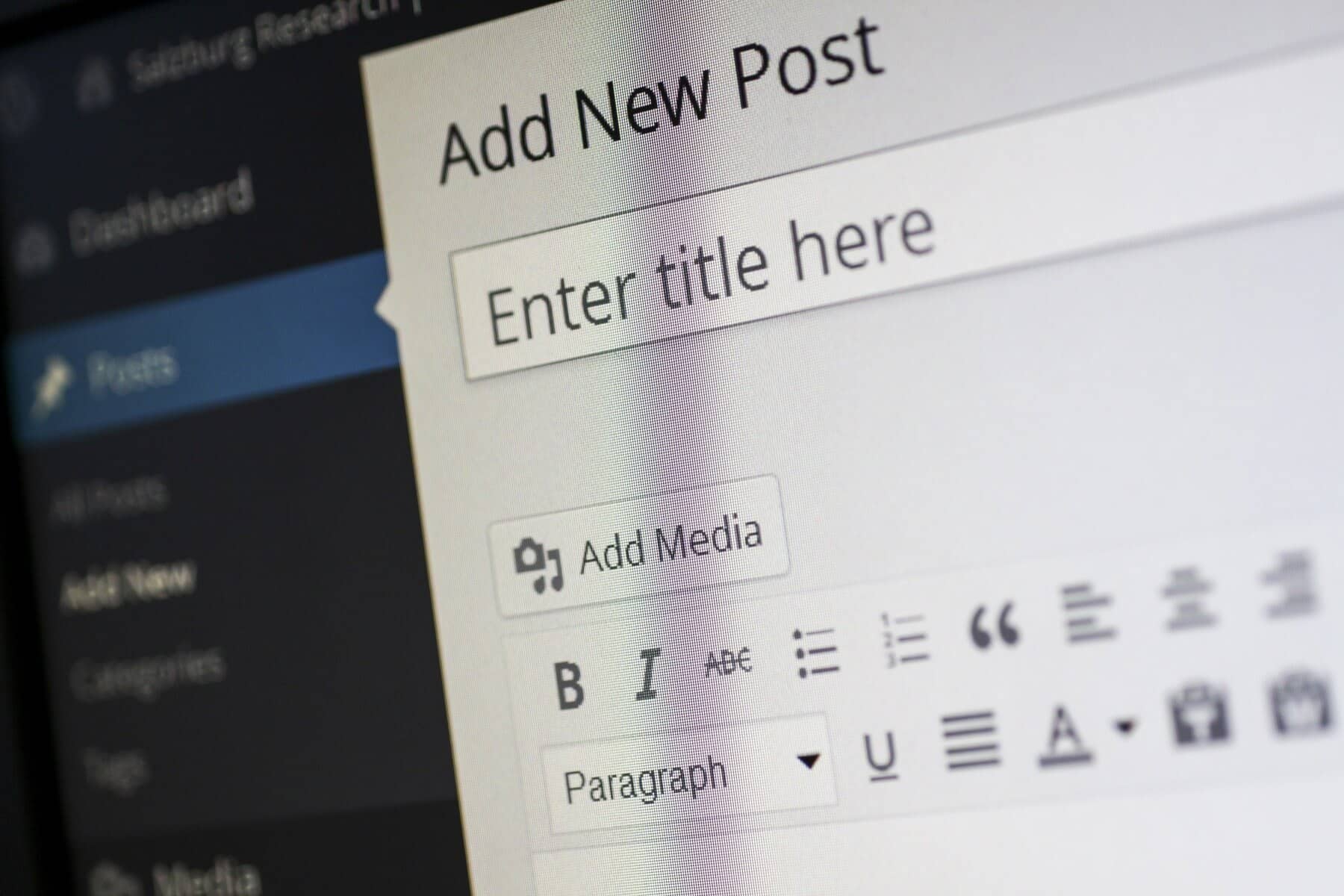
In today’s digital landscape, maintaining a secure and high-performing website is essential for any business or individual looking to establish a robust online presence. WordPress, which powers over 40% of the internet, is widely praised for its flexibility, ease of use, and extensive plugin ecosystem. However, this popularity also makes it an attractive target for cyberattacks. To safeguard your WordPress site from potential threats and ensure it operates smoothly, ongoing maintenance is crucial. Here’s an in-depth guide on how to protect your WordPress site through effective ongoing maintenance strategies.
Regular Software Updates
Keeping your WordPress core, themes, and plugins updated is one of the most critical aspects of WordPress maintenance. Each update is designed to address security vulnerabilities, fix bugs, and enhance performance. When developers identify potential threats or areas for improvement, they release updates to patch these issues. Failing to update your site can leave it exposed to known vulnerabilities that hackers may exploit.
Why It Matters: Outdated software is a common entry point for cybercriminals. By ensuring you have the latest versions of WordPress, themes, and plugins, you minimize the risk of security breaches and improve overall site functionality.
How to Do It: Enable automatic updates for WordPress core and plugins where feasible. For themes and plugins that don’t support automatic updates, regularly check the WordPress dashboard for notifications. It’s also advisable to manually review updates and test them on a staging site before applying them to your live site to ensure compatibility and prevent potential issues.
Implement Robust Backup Solutions
Implementing a comprehensive backup strategy is akin to having an insurance policy for your website. In the event of a cyberattack, system failure, or accidental data loss, having recent backups ensures that you can restore your site to a previous, functioning state with minimal downtime and data loss. Regular backups safeguard against unforeseen circumstances that might otherwise result in significant operational disruptions.
Why It Matters: Frequent backups provide peace of mind, knowing that your site’s data and configurations are preserved and can be quickly restored if needed. This practice is crucial for maintaining business continuity and protecting valuable content and user data.
How to Do It: Utilize reliable backup plugins such as UpdraftPlus or BackupBuddy to automate the backup process. Schedule backups to occur daily or weekly based on your site’s activity and ensure backups are stored in multiple locations, such as cloud storage services (e.g., Google Drive, Dropbox) and an external hard drive. Regularly verify the integrity of your backups by performing test restorations.
Enhance Security with Strong Passwords and User Permissions
Security starts with proper authentication and user management. Weak passwords and improper user permissions can create vulnerabilities that hackers may exploit. Implementing strong password policies and managing user roles meticulously are essential practices for enhancing your site’s security.
Why It Matters: Weak passwords are an easy target for brute-force attacks, where hackers use automated tools to guess passwords. Additionally, granting excessive permissions to users can lead to unauthorized access and potential misuse of site functions.
How to Do It: Use a password manager to generate and store strong, unique passwords for all site accounts. Implement two-factor authentication (2FA) to add an extra layer of security. Regularly review user roles and permissions to ensure that only authorized individuals have access to critical site areas. Adjust permissions as needed when staff roles change or when users no longer require access.

Monitor and Audit Your Site Regularly
Regular monitoring and auditing are proactive measures that help identify and address potential security threats before they escalate. By keeping an eye on site activity, login attempts, and changes to content or configurations, you can detect suspicious behavior early and take corrective action.
Why It Matters: Continuous monitoring helps you stay ahead of potential issues, reducing the risk of significant damage from security breaches or unauthorized changes. Regular audits ensure that your site remains compliant with security best practices and industry standards.
How to Do It: Install security plugins like Wordfence or Sucuri Security that offer real-time monitoring, alerts, and detailed activity logs. Conduct regular security audits to review your site’s health, check for vulnerabilities, and address any identified issues. Utilize tools to track login attempts and review user activity to spot any anomalies or suspicious behavior.
Optimize Performance and Speed
A fast and well-optimized site not only enhances user experience but also positively impacts your site’s search engine ranking. Performance optimization involves various techniques to ensure your site loads quickly and runs efficiently, which is crucial for retaining visitors and maintaining a good SEO standing.
Why It Matters: Slow-loading pages can frustrate users and lead to higher bounce rates, negatively affecting your site’s reputation and search engine rankings. Regular optimization helps ensure a seamless and enjoyable browsing experience for your audience.
How to Do It: Use performance optimization plugins like WP Super Cache or W3 Total Cache to improve site speed by caching static content and reducing server load. Regularly test your site’s speed using tools like Google PageSpeed Insights and make necessary adjustments, such as optimizing images, minifying CSS and JavaScript files, and leveraging browser caching. Address any performance issues promptly to maintain a fast-loading site.
Clean Up and Manage Your Database
Over time, your WordPress database can accumulate unnecessary data, including old post revisions, spam comments, and unused plugins, which can bloat the database and slow down your site. Regular database maintenance is essential for keeping your site efficient and responsive.
Why It Matters: A cluttered database can degrade site performance and impact user experience. Regularly cleaning and optimizing your database helps maintain optimal site speed and efficiency.
How to Do It: Use database management plugins like WP-Optimize or Advanced Database Cleaner to regularly clean and optimize your database. Schedule these maintenance tasks to occur during off-peak hours to minimize any potential impact on site performance. Regularly review and delete old post revisions, spam comments, and unused plugins to keep your database lean and efficient.
Secure Your Site with HTTPS
Securing your site with HTTPS (HyperText Transfer Protocol Secure) is crucial for protecting user data and ensuring secure communication between your site and its visitors. HTTPS encrypts data transmitted over the internet, making it much harder for malicious actors to intercept or tamper with sensitive information.
Why It Matters: HTTPS is not only vital for safeguarding user data but also a ranking factor for search engines. Google and other search engines prioritize secure sites in their rankings, making HTTPS essential for maintaining good SEO practices.
How to Do It: Obtain an SSL certificate from your hosting provider or a reputable third-party issuer. Install the certificate on your server and ensure that all site URLs use HTTPS. Utilize plugins like Really Simple SSL to manage the transition and redirect HTTP traffic to HTTPS. Regularly check for any mixed content issues and ensure that all elements on your site are securely served over HTTPS.
Conclusion
Ongoing maintenance is a fundamental practice for protecting your WordPress site from security threats and performance issues. By consistently updating your software, implementing robust backup solutions, enhancing security practices, monitoring and auditing your site, optimizing performance, managing your database, and securing your site with HTTPS, you can ensure that your WordPress site remains safe, fast, and reliable.
Investing time and resources into regular maintenance not only protects your site from potential threats but also enhances the overall user experience and ensures that your site remains a valuable asset for your online presence. For tailored WordPress maintenance services designed to meet your specific needs, consider reaching out to Rocket Web Development. Our expert team is dedicated to keeping your WordPress site secure, efficient, and up-to-date.
